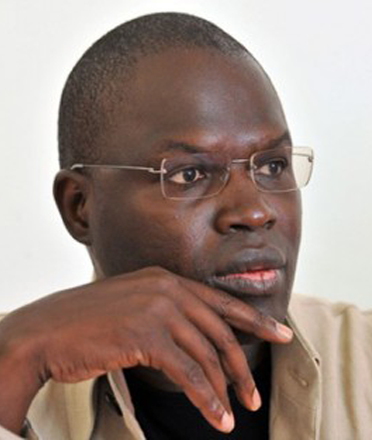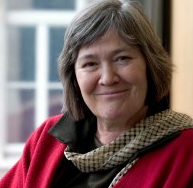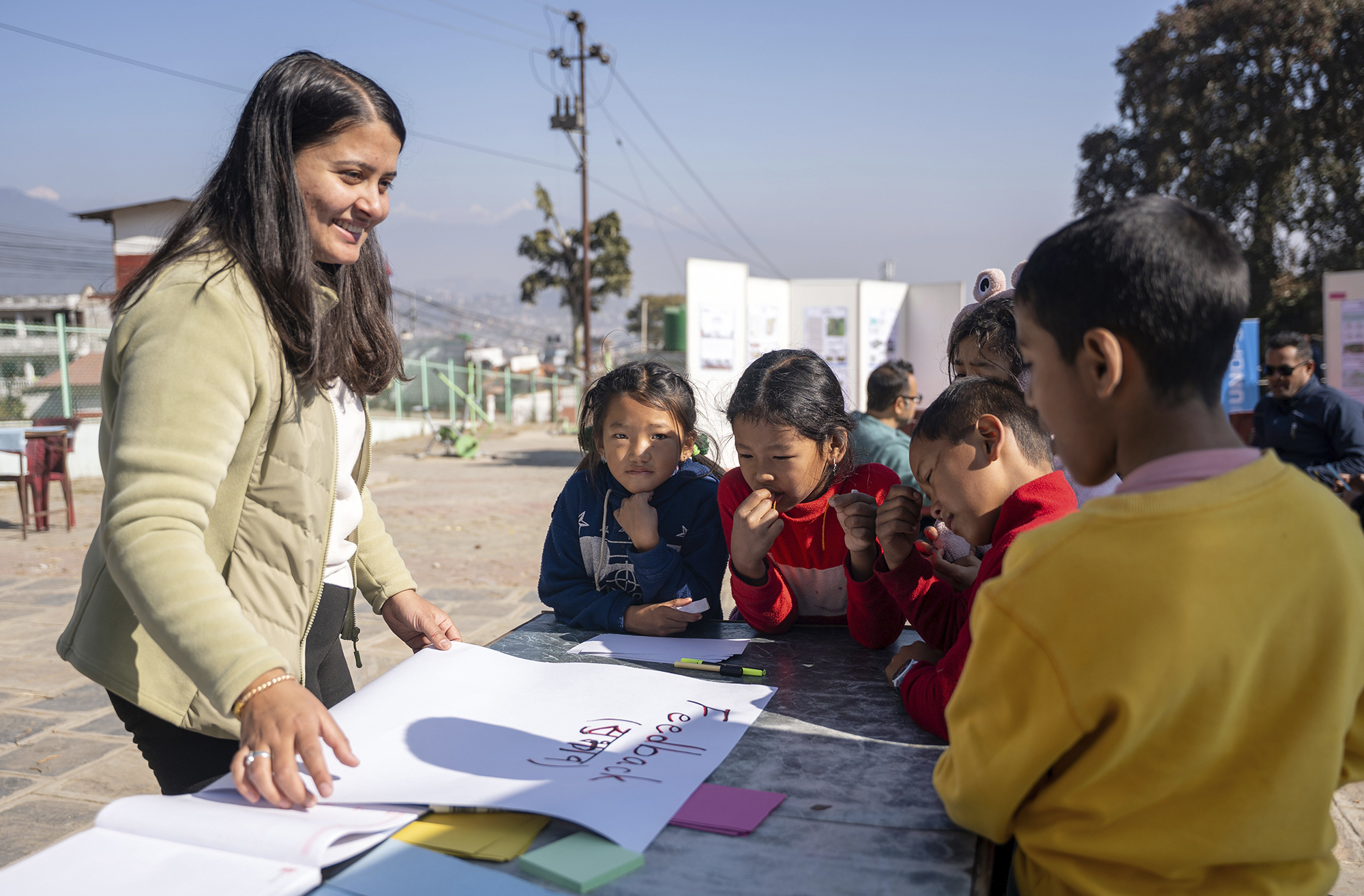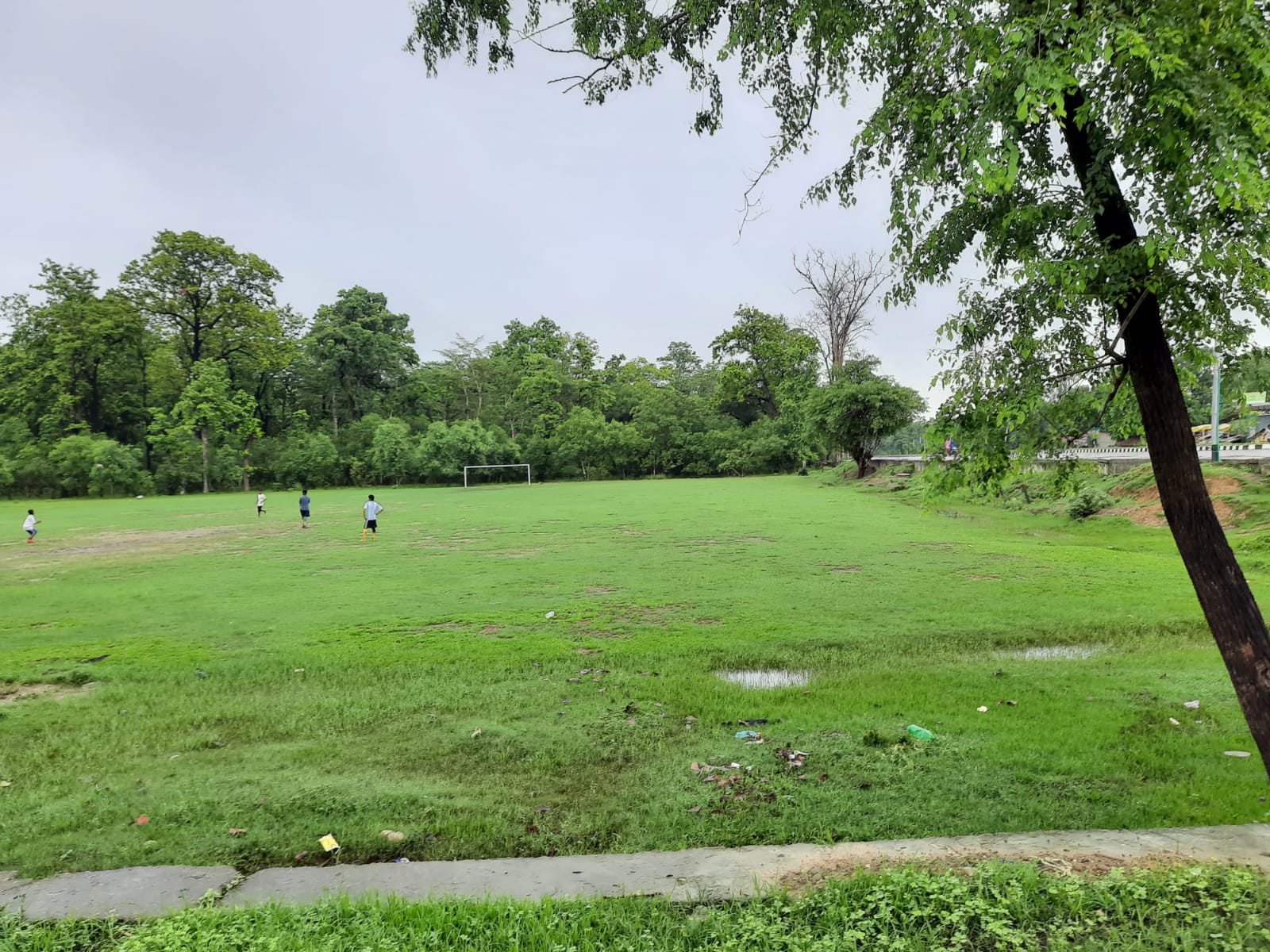The highlights of the Cities Alliance Assembly meeting in April were the election of new leadership, and a new Management Board.
Khalifa Sall, Mayor of Dakar and President of United Cities and Local Governments of Africa, was elected President of the new Cities Alliance Assembly, while Clare Short, former UK Member of Parliament and Secretary for International Development, was elected as Chair of the Management Board.
The new Management Board has 11 members, drawn from the six constituencies of the Assembly:
Governments
Ghana (Ministry of Local Government and Rural Development)
The Government of Ghana is a long-term partner of the Cities Alliance through the Ghana Land, Services and Citizenship Programme, which supports partners to align urban development efforts at the national, city and community levels. Successfully implemented since 2010, the programme has comprised seven grants and leveraged a US$150 million followup loan from the World Bank. It also laid the foundation for Ghana’s capital, Accra, to participate in our Future Cities Africa initiative, which is supporting African cities as they transform themselves into resilient, inclusive centres of economic growth. Ghana joined Cities Alliance in 2016.
South Africa (National Department of Human Settlements)
Cities Alliance and the South African National Department of Human Settlements have collaborated on numerous successful initiatives, beginning with the establishment of the South African Cities Network (SACN) in 2002. The network has been on the cutting edge of urban research and policy dialogue in South Africa, and is widely viewed by local authorities as a respected urban development partner. In 2004 Cities Alliance funded SACN’s first State of South African Cities report, filling a glaring hole for contemporary urban data and analysis. Cities Alliance also supported the Department of Human Settlements to create the National Upgrading Support Programme (NUSP), which incorporated informal settlement upgrading into the country’s national housing policy. South Africa joined the partnership in 2006.
Switzerland (Swiss State Secretariat for Economic Affairs)
The Swiss federal government’s centre of expertise for all core issues relating to economic policy, the Swiss State Secretariat for Economic Affairs (SECO) also oversees Switzerland’s economic cooperation and international development activities. SECO joined Cities Alliance in 2014 and is a strong supporter of Country Programmes. An active member of our Joint Work Programme (JWP) for Habitat III and an observer in the JWP for Resilient Cities, SECO is also a member of the Membership Standing Committee. SECO holds an annual urban roundtable for urban development grantees, which the Cities Alliance hosted in 2015.
United Kingdom (Department for International Development)
The official aid agency for the UK government, DFID first joined the Cities Alliance in 2000. In the early years of the partnership, DFID worked closely with the Cities Alliance on successful projects such as the Slum Upgrading Facility (SUF) and the Community Led Infrastructure Financing Facility (CLIFF). In 2014 DFID reengaged with Cities Alliance, and has been a key partner in our Future Cities Africa programme, which is changing the way cities think about and plan for resilience. DFID is active in several Cities Alliance Joint Work Programmes: It is a member of the JWP for Habitat III, serves as Chair of the JWP for Equitable Economic Growth, and is an observer on the JWP for Gender Equality.
Local Authorities
ICLEI – Local Governments for Sustainability
ICLEI is the world’s leading network of over 1,000 cities, towns and metropolises committed to building a sustainable future. It offers tools and services, advocacy, and knowledge resources on a range of topics: resilient city, smart city, and happy, healthy, inclusive communities.
Prior to becoming a member in 2015, ICLEI had an informal relationship with Cities Alliance for several years. The two organisations collaborated in supporting successful global advocacy efforts on behalf of a standalone goal for cities in the Sustainable Development Goals (SDGs), and Cities Alliance was a supporting partner of ICLEI’s major Resilient Cities conference in June 2015. ICLEI now serves as Chair of the JWP for Resilient Cities, and is an active member of the JWP for Habitat III.
United Cities and Local Governments (UCLG)
United Cities and Local Governments (UCLG) represents and defends the interests of local governments on the world stage. Its members include individual cities and national associations of local governments, which represent all the cities and local governments in a single country.
Since its establishment in 2004, UCLG and Cities Alliance have collaborated on numerous initiatives to strengthen the role of local government in the strategic planning process, including the establishment of very successful city-to-city mentorship programmes. UCLG was instrumental in guiding the governance reform process of the Cities Alliance, including the move to Brussels, and has been a key partner in several Cities Alliance Country Programmes. Cities Alliance has provided funding for knowledge products including UCLG’s flagship Global Report on Local Democracy and Decentralisation (GOLD). UCLG currently serves as Co-Chair of our Gender Equality JWP and is an active participant in the JWP for Habitat III.
Non-governmental Organisations
Habitat for Humanity International (HFHI)
HFHI is a non-profit organisation whose mission is to eliminate substandard housing and homelessness from the world and through education, make decent shelter a matter of conscience and action. HFHI is a federated organisation that has operated in over 100 countries and has been a member of Cities Alliance since 2010.
In the leadup to Habitat III, HFHI and Cities Alliance have teamed up to support numerous events to mobilise stakeholders around issues of housing, especially in Latin America. Other areas of collaboration have included global advocacy efforts to raise the profile of the New Urban Agenda and knowledge products such as From Slums to Sustainable Communities: The Transformative Power of Secure Tenure. HFHI is an active member of our JWPs for Habitat III and Gender Equality, and will be a key partner in our upcoming Liberia Country Programme. It is currently Chair of the Finance Standing Committee.
Slum Dwellers International (SDI)
SDI is a transnational network of local slum dweller organisations that have come together at the city and national level to form federations of the urban poor. It has affiliates in Latin America, Asia and Africa.
When SDI joined the Cities Alliance in 2007, it brought the voice of slum dwellers into the partnership. Since then, SDI has been a key partner in many of the Cities Alliance Country Programmes, effectively driving the community mobilisation component that is built into each one. Cities Alliance has supported initiatives such as Know Your City – a global campaign initiated between SDI and UCLGA for gathering citywide data on slums as the basis for inclusive partnerships between the urban poor and their local governments – as well as learning initiatives to improve urban planning in Africa. SDI is Co-Chair of the JWP for Gender Equality and an active member of the JWP for Habitat III. It will also play an important role in the new Liberia Country Programme.
Private Sector/Foundations
Omidyar Network
Omidyar Network invests in entrepreneurs who share its commitment to advancing social good at the pace and scale the world needs today. It focuses on five key areas: Consumer Internet and Mobile, Education, Financial Inclusion, Governance and Citizen Engagement, and Property Rights. Omidyar joined the Cities Alliance in 2015 as the first representative of the private sector in the partnership.
Cities Alliance and Omidyar first collaborated in the Financial Times/International Finance Corporation Transformational Business Awards in 2015, which Omidyar sponsors. Cities Alliance sponsored a Special Award for Excellence in City Transformation to draw international attention to cities that are trying innovative, citywide approaches to promoting inclusive growth for all citizens. Cities Alliance is sponsoring the award again in 2016.
Universities, Research Centres and Knowledge Networks
Sustainable Development Solutions Network (SDSN)
The Sustainable Development Solutions Network (SDSN) mobilises global scientific and technological expertise to promote practical problem solving for sustainable development, including the design and implementation of the Sustainable Development Goals (SDGs). It is committed to supporting the implementation of the SDGs at local, national, and global scales.
The SDSN Thematic Network on Sustainable Cities played a highly effective role, along with partners, in mobilising the urban community in support of a standalone goal for cities, SDG 11. Cities Alliance worked closely with SDSN and other partners in this campaign, and SDSN joined the partnership in 2016 in order to strengthen its engagement with Cities Alliance as it supports the implementation of SDG 11.
SDSN is actively building a global network of universities, research centres, and other knowledge institutions to support the implementation of Agenda 2030, promote solutions, and strengthen education for sustainable development. SDSN is hosted by Columbia University in New York.
Multi-lateral Organisations
UN-Habitat
The United Nations Human Settlements Programme, UN-Habitat, is the United Nations agency for human settlements. It is mandated by the UN General Assembly to promote socially and environmentally sustainable towns and cities with the goal of providing adequate shelter for all.
UN-Habitat is a founding member of the Cities Alliance, together with the World Bank, and a member of the Membership Standing Committee. It has shaped many of the partnership’s activities, ranging from City Development Strategies to slum upgrading initiatives and national policies. UN-Habitat is a key partner in several of our Country Programmes, notably Mozambique and Burkina Faso. Cities Alliance has also supported a number of major knowledge products with UN-Habitat, including the Quick Guides for Asian Policymakers, the Quick Guides for African Policymakers, and the State of African Cities 2014.
Since 2009, UN-Habitat has played a key role in a number of Cities Alliance JWPs, including climate change; advocacy on behalf of urban issues in the leadup to Habitat III in 2016; and lessons learned based on past experience with slum upgrading and City Development Strategies. It is an active member in all four of our current JWPs: Habitat III, Resilient Cities, Equitable Economic Growth, and Gender Equality.
Meet the new Cities Alliance Leadership
Mr. Khalifa Sall, President of the Cities Alliance Assembly

Mr. Sall previously held several Ministerial positions including Minister Delegate to the Prime Minister in charge of relations with Parliament (1995), Minister of Commerce and Handicrafts and was elected to the National Assembly in 2001.
A teacher by training, Khalifa Sall holds two Masters degrees in History and Constitutional Law.
Ms. Clare Short, Chair, Cities Alliance Management Board

In April 2016, she was elected Chair of the Cities Alliance Management Board. Prior to that she was the Senior Policy Advisor for the Cities Alliance from 2006. Ms. Short is also currently a trustee of Hope Projects (West Midlands) Ltd, Trade Out of Poverty, the Welfare Association, and Africa Humanitarian Action; and patron of the Israeli Committee Against House Demolitions UK.
She was the Chair of the Extractive Industries Transparency Initiative EITI from 2011 to 2016. She is a former Opposition spokesperson on Overseas Development, Shadow Minister for Women, and Shadow Secretary of State for Transport. Ms. Short was educated at the Universities of Keele and Leeds and holds a Bachelor of Arts with Honours in Political Science.
Ms. Short’s current work is focused on the Palestinian/ Israeli conflict, the urbanisation of the poor and the need to prevent the spread of slums of despair, destitute asylum-seekers, humanitarian action in Africa and other issues.




